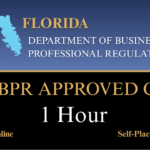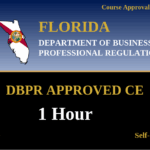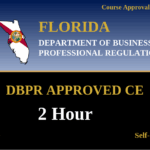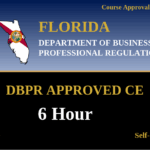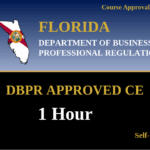
Does Florida Offer Electrical License Reciprocity?
Does Florida Offer Electrical License Reciprocity? A 2026 Guide for Out-of-State Electricians
If you’re an experienced electrician considering a move to the Sunshine State, your first question is likely about transferring your hard-earned license. While many search for “Florida electrical license reciprocity,” it’s crucial to understand that Florida uses a different mechanism: endorsement. This guide will walk you through the process, clear up the confusion, and outline the pathways for an out-of-state electrician license in Florida.
The Florida Opportunity: A Booming Market for Electricians
Florida’s economic landscape is a major draw for trade professionals. The state’s electrical industry is substantial, employing approximately 46,690 electricians as of May 2023, according to the Bureau of Labor Statistics. This thriving environment means high demand for qualified talent, from large commercial projects to the needs of a growing residential population. For a licensed electrician, this translates into significant career opportunities, but tapping into this market requires navigating the state’s specific licensing channels managed by the Florida Department of Business and Professional Regulation (DBPR).
Endorsement vs. Reciprocity: Understanding the Key Difference
The terms “reciprocity” and “endorsement” are often used interchangeably, but they mean very different things in the context of professional licensing. True reciprocity involves a formal, mutual agreement between two states to recognize each other’s licenses. Florida does not have these types of standing agreements for electrical licenses.
Instead, Florida offers a path to licensure called endorsement. This is a one-way process where the Florida Electrical Contractors’ Licensing Board reviews an individual’s out-of-state license, examination history, and experience to determine if they meet Florida’s standards. It’s not an automatic transfer; it’s an application to have your existing qualifications recognized. This process is key for achieving electrical license portability and making a professional electrician license transfer to Florida a reality.
Pathways to a Florida Certified Electrical Contractor License by Endorsement
For electricians aiming to work statewide, the goal is to become a certified electrical contractor. The state of Florida offers two primary endorsement pathways to achieve this without taking the full technical/safety exam.
Path 1: Endorsement via a Substantially Equivalent Exam
If you passed a proctored, written electrical contractor exam in another state, you might qualify for endorsement. The critical factor is whether the Florida Electrical Contractors’ Licensing Board (ECLB) considers your exam to be “substantially equivalent” to its own. The Board evaluates each application on a case-by-case basis to make this determination. While the Board has previously recognized exams from certain states, it’s the applicant’s responsibility to provide all necessary documentation for the review. This is a popular route for those looking for a Florida electrical license without taking the technical exam again. Electrical endorsements exams comparison document details the states and categories of licensure the Florida Electrical Contractors’ Licensing Board currently recognizes as having substantially similar examinations for the purposes of endorsement. Application forms, both online and printable, are available here.
Individuals who hold licenses from states that are recognized for endorsement and have taken and passed that state’s examination may be eligible for endorsement. For information on states or examinations other than those listed, contact the Department Of Business and Professional Regulation at
850-487-1395.
Path 2: The 10-Year Endorsement for Veteran Contractors
Experienced professionals may qualify for the 10-year endorsement electrical license Florida pathway. According to Florida Statute 489.511(5)(c), you may qualify if you have held a valid, current license to practice electrical contracting in another U.S. state or territory for at least 10 years. The statute requires the application to be made either when the out-of-state license is active or within two years after it was last active, and the license must be in good standing. This option recognizes long-term professional experience as a valid qualification for becoming a certified electrical contractor in Florida. It is important to note that this endorsement path is also subject to other statutory requirements, such as proving financial responsibility and obtaining public liability insurance. Review the detailed requirements and application form here – 10 Year Endorsement (ECLB 14).
The Non-Negotiable Step: Florida’s Business and Finance Exam
Even if you qualify for endorsement and can bypass the technical exam, there’s one test almost every applicant must take: the Florida electrical business and finance exam. This exam is not about electrical theory; it covers Florida-specific laws, regulations, business practices, and financial management principles essential for running a contracting business in the state. Passing this exam ensures that all state-certified contractors, regardless of their technical background, understand the legal and financial landscape they will be operating in.
What About a Journeyman Electrician Moving to Florida?
This is a common point of confusion. Unlike many other states, Florida does not issue a statewide journeyman or master electrician license. These licenses are managed at the local level by individual counties or municipalities. Therefore, there is no state-level process for a journeyman electrician moving to Florida to transfer their license through reciprocity or endorsement.
If you hold a journeyman license from another state, you will need to contact the specific county or city where you plan to work to understand their requirements. Some local jurisdictions may recognize your out-of-state credentials or require you to take a local competency exam. Your other option is to gain the necessary supervisory experience to apply directly for the state-level certified electrical contractor Florida license.
Staying Current: CE, Codes, and Professional Development
Once you are licensed in Florida, maintaining your status requires completing continuing education (CE). For a certified electrical contractor, the biennial renewal requires 11 hours of board-approved courses broken down as follows: 7 hours of technical subjects, 1 hour on Florida laws and rules, 1 hour on workplace safety, 1 hour on business practices, and 1 hour on workers’ compensation. The 7 technical hours must include at least one hour of an approved provider’s specialized or advanced module course on the Florida Building Code, with the remaining hours covering relevant topics such as the National Electrical Code (NEC). These requirements ensure you stay up-to-date on crucial topics. For example, understanding the latest NEC rules is vital. Keeping informed on how to use reconditioned electrical equipment or new standards for service equipment labeling requirements are prime examples of the practical knowledge gained through CE. Whether you’re coming from an electrician school or have decades of experience, leveraging online electrical courses is a convenient way to meet these mandates. ExpertCE offers a full suite of courses to help you fulfill your requirements and keep your skills sharp. To get started, browse our courses today.
Florida Continuing Education Courses
Explore our board-approved continuing education courses for Florida professionals:
View CE RequirementsFlorida 1 hour course on workers’ compensation
Florida 1 hour course on workplace safety
Florida 2 hours course on false alarm prevention
Florida 6 hours electrical CE course (Technical)
Florida 1 hour business practices course
Frequently Asked Questions About Transferring an Electrician License to Florida
- Does Florida have direct electrical license reciprocity with any state?
No, Florida does not have automatic reciprocity agreements. It uses an endorsement process where your qualifications are reviewed for equivalency. - Can I get a Florida electrical license without taking any exams?
It is highly unlikely. While you may be able to waive the technical exam through endorsement, you will almost certainly be required to pass the Florida Business and Finance exam. - What is the first step in the endorsement process?
The first step is to gather all your documentation, including verification of your out-of-state license and exam history, and submit an application to the Florida DBPR Electrical Contractors’ Licensing Board. It’s always best to consult their official website for the most current forms and requirements.
Disclaimer: The information provided in this educational content has been prepared with care to reflect current regulatory requirements for continuing education. However, licensing rules and regulations can vary by state and are subject to change. While we strive for accuracy, ExpertCE cannot guarantee that all details are complete or up to date at the time of reading. For the most current and authoritative information, always refer directly to your state’s official licensing board or regulatory agency.
NEC®, NFPA 70E®, NFPA 70®, and National Electrical Code® are registered trademarks of the National Fire Protection Association® (NFPA®)

